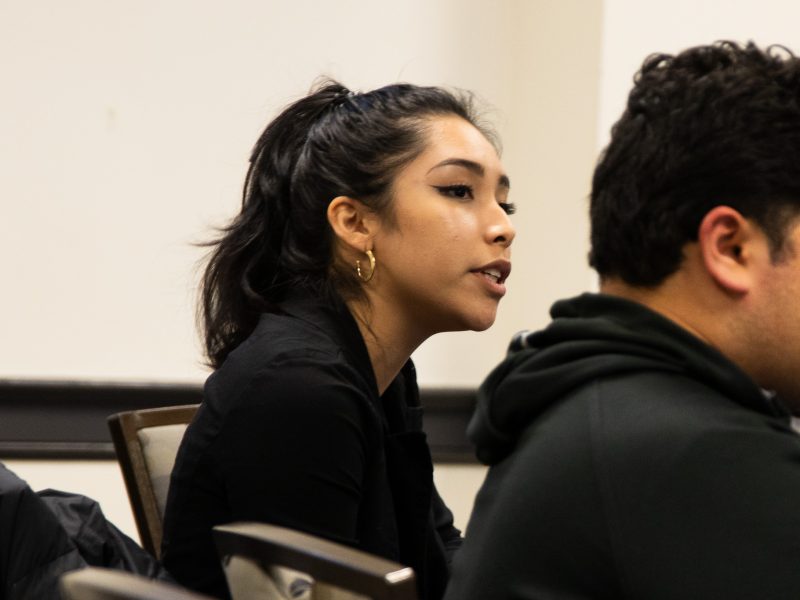The University of Maryland SGA’s 2018-19 executive board will be sworn into office Tuesday night. The group said they’re planning to tackle new projects such as a room reservation system and a reinvigorated alumni network, and change the culture of the Student Government Association next year.
The group said they want to bring back social media forums like “WTF UMD,” or What To Fix UMD, where students could bring concerns directly to their representatives, create a centralized classroom reservation platform for student groups and bolster SGA-alumni relations.
President-elect Jonathan Allen, a junior government and politics major, said he’ll be staying in the area over the summer and hopes to jump-start some of the year’s projects while campus is quiet and administrators have more time for meetings. He said he’s planning on promoting student voting in the upcoming midterm elections and improving alumni relations with former SGA members.
[Read more: Envision Maryland candidate Jonathan Allen will be the SGA’s new president]
“Next year will be SGA’s 100th anniversary,” Allen said. “So, hopefully using that as some momentum to both grow our alumni relations … [and] also celebrate all the great work that the organization has done over the last 100 years.”
Rahila Olanrewaju, academic affairs vice president-elect, said she would be continuing the SGA’s trend of supporting open-source textbooks for students.
“I think that will really involve speaking more with administration and faculty members and understanding what drawbacks professors experience in integrating the program more in their curriculum,” said Olanrewaju, a sophomore economics and government and politics major.
In the SGA’s omnibus meeting April 25, the body voted to remove the cap of 15 members from the finance committee, but Andrew Stover, who will be the vice president of financial affairs, said he’s not planning on expanding the committee.
[Read more: SGA candidate debate centers on financial issues and student involvement]
“I’m going to bring in the people I think are the best and most qualified,” said Stover, a sophomore public policy major.
Stover said he did want to work to streamline the funding application process and create a better system for room reservations. Allen explained his goals, saying the eCalendar system didn’t include a large portion of the university’s rooms.
“We have hundreds of rooms on this campus, and we have several different room reservation systems, which just adds a layer of complexity,” Allen said.
Ro Nambiar, who was elected as next year’s student affairs vice president, said she’d want to focus on mental health issues by working with the counseling center.
Nambiar, a junior public health science major, said she also wanted to bring internal changes to the organization. She referenced outgoing Communications Director Nisha Desai’s recent Diamondback guest column, in which Desai wrote that minorities and women in the SGA needed more support.
“Whatever happened this year is in the past,” Nambiar said. “Being a woman and being a minority and being in one of the vice president’s roles, I feel like I have a responsibility that I gladly accept, and I’m more than willing to put my all into making sure that something like this will never happen again, this feeling [of not being respected].”
Allen said it was an opportune time for institutional change, since many incoming SGA members were young.
“We have 75 percent of the incoming SGA that are underclassmen, so the culture is really what we make of it,” Allen said.
The group said the incoming members were very enthusiastic about getting involved. Nambiar said she’d be working with the new directors to help them promote student participation in SGA committees by reaching out to relevant colleges and groups.
“I did this personally, for health and wellness last year,” Nambiar said. “I hit the listservs, put out my announcements at the beginning of the year and that’s something I think nobody else really did, and we really need to focus on branching out.”



